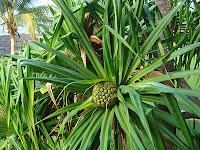Proper 28A: Psalm 90
So teach us to number our days that we may apply our hearts
to wisdom. (Psalm 90:12)
Psalm 90 contrasts the greatness and eternity of God to our
fragile and finite lives with the hope expressed that we might learn to “number
our days” – to be aware of our finite human condition – so that we become truly wise, gaining wisdom in our hearts. This is the psalm that reminds us that a
thousand years are like yesterday in God’s sight, or like a watch in the night.
Before the mountains or the land or the earth itself existed, God existed.
We take a smaller view of things most of the
time, losing the perspective of this psalm; survival demands that we pay attention to our essential and immediate needs
before other things, and that habit of mind then extends to less essential
things. But when our essential
needs are met, we can step back and get some perspective on our place in the
universe and in time.
The more we can keep hold of that perspective, the more that we realize that the world does not in fact revolve around any one of us, the
wiser we become. God cares for each one of us and knows the number of hairs on
each of our heads, but we are wise if we can occasionally look outside of
ourselves and think about something other than our hair or wealth or comfort.
This was a heavy news week across the board. In
environmental news, yesterday’s news about the Keystone XL pipeline project
being delayed – and perhaps eventually stopped -- and the underlying message
that the voices of Nebraskans concerned about our land and water had been heard
was big news here. However, big though that story was for our state, our
nation, and our planet – and it is a very big story indeed! – there is another
story that got much less attention among the general public but is very
important for everyone.
We cannot afford to delay further action to tackle climate
change if the long-term target of limiting the global average temperature
increase to 2°C …is to be achieved at reasonable cost.
The report says that we have five years to turn things
around and prevent irreversible climate change. There have been some “steps in
the right direction, but the door to 2°C is closing”. Five years – a very short
amount of time even in our eyes.
What will we do in the next five years? What will be the priorities
of our political and business leaders, and what priorities will we ask them to
adopt? Will we in the church pray and work to preserve God’s creation and
defend the people hurt first and worst by climate change, or squabble over our
own internal affairs and wonder why people don’t seem to be interested in
joining us?
The past five years were critical to climate change, as were the
past twenty as we really came to understand what was happening, but too little
has been done to make a difference in outcome. We have been so much in denial
that we have allowed our leaders and policymakers to delay taking significant action to
address climate change. The next five
years are our last chance to get it right.
The WEO-11 report says:
Delaying action is a false economy: for every $1 of
investment in cleaner technology that is avoided in the power sector before
2020, an additional $4.30 would need to be spent after 2020 to compensate for
the increased emissions.
In other words, delaying action is foolish, while doing what
needs to be done would be wise. Given what is at stake, failing to get serious
about climate change is totally irrational and morally indefensible.
So teach us to number our days that we may apply our hearts
to wisdom.

























